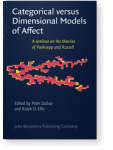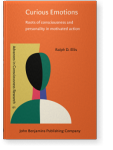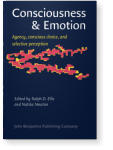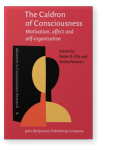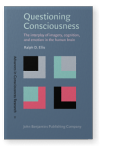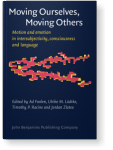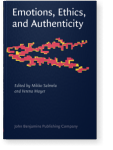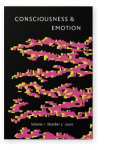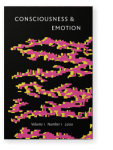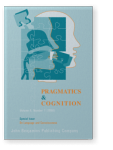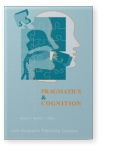Ralph D. Ellis
List of John Benjamins publications for which Ralph D. Ellis plays a role.
Book series
Categorical versus Dimensional Models of Affect: A seminar on the theories of Panksepp and Russell
Edited by Peter Zachar and Ralph D. Ellis
[Consciousness & Emotion Book Series, 7] 2012. vi, 350 pp.
Subjects Cognitive psychology | Consciousness research | Philosophy
Curious Emotions: Roots of consciousness and personality in motivated action
Ralph D. Ellis
[Advances in Consciousness Research, 61] 2005. viii, 238 pp.
Subjects Cognitive psychology | Consciousness research | Philosophy
Consciousness & Emotion: Agency, conscious choice, and selective perception
Edited by Ralph D. Ellis and Natika Newton
[Consciousness & Emotion Book Series, 1] 2005. xii, 330 pp.
Subjects Cognitive psychology | Consciousness research
Affective Qualia and The Subjective Dimension
Edited by Ralph D. Ellis and Natika Newton
Special issue of Consciousness & Emotion 2:1 (2001) vi, 188 pp.
Subjects Consciousness research
The Caldron of Consciousness: Motivation, affect and self-organization — An anthology
Edited by Ralph D. Ellis and Natika Newton
[Advances in Consciousness Research, 16] 2000. xxii, 276 pp.
Subjects Cognition and language | Cognitive psychology | Consciousness research | Philosophy
Questioning Consciousness: The interplay of imagery, cognition, and emotion in the human brain
Ralph D. Ellis
[Advances in Consciousness Research, 2] 1995. viii, 262 pp.
Subjects Cognitive psychology | Consciousness research | Philosophy
2012 16. Concluding observations: Comparisons, contrasts, and some important convergences Categorical versus Dimensional Models of Affect: A seminar on the theories of Panksepp and Russell, Zachar, Peter and Ralph D. Ellis (eds.), pp. 321–346 | Article
2012 Could moving ourselves be the link between emotion and consciousness? Moving Ourselves, Moving Others: Motion and emotion in intersubjectivity, consciousness and language, Foolen, Ad, Ulrike M. Lüdtke, Timothy P. Racine and Jordan Zlatev (eds.), pp. 57–80 | Article
The idea that emotion is an indispensable ingredient of consciousness in all modalities is not new. Panksepp and Damasio, for example, show that we can gradually eliminate cortical areas without eliminating “core consciousness,” whereas knocking out emotional areas renders all types of… read more
2009 Emotional authenticity as a central basis of moral psychology Emotions, Ethics, and Authenticity, Salmela, Mikko and Verena Mayer (eds.), pp. 179–194 | Article
If emotional inauthenticity in the form of confabulation with regard to moral issues is not a universal human condition, or at least is not always present in the same degree, then the dynamics of moral confabulation, as illustrated by the phenomenon of authoritarianism, should be able to teach us… read more
2008 The phenomenology of alexithymia as a clue to the intentionality of emotion Fact and Value in Emotion, Charland, Louis C. and Peter Zachar (eds.), pp. 181–192 | Article
2005 Introduction Consciousness & Emotion: Agency, conscious choice, and selective perception, Ellis, Ralph D. and Natika Newton (eds.), pp. ix–xii | Miscellaneous
2002 Review of Bachmann (2000): Microgenetic Approach to the Conscious Mind Consciousness & Emotion 3:1, pp. 98–103 | Review
2001 The function of the cerebellum in cognition, affect and consciousness: Empirical support for the embodied mind Consciousness & Emotion 2:2, pp. 273–309 | Article
Editors’ note:þThese four interrelated discussions of the role of the cerebellum in coordinating emotional and higher cognitive functions developed out of a workshop presented by the four authors for the 2000 Conference of the Cognitive Science Society at the University of Pennsylvania. The four… read more
2000 Review of Panksepp (1998): Affective Neuroscience Consciousness & Emotion 1:2, pp. 313–318 | Review
2000 Integrating the Physiological and Phenomenological Dimensions of Affect and Motivation The Caldron of Consciousness: Motivation, affect and self-organization — An anthology, Ellis, Ralph D. and Natika Newton (eds.), pp. 3–26 | Chapter
2000 Editorial: The interdependence of consciousness and emotion Consciousness & Emotion 1:1, pp. 1–10 | Miscellaneous
1996 Ray Jackendoff's phenomenology of language as a refutation of the 'appendage' theory of consciousness On Language and Consciousness, Jackendoff, Ray and Wallace Chafe, pp. 125–137 | Discussion
Since Jackendoff has shown that language facilitates abstract and complex thought by making possible subtle manipulations of the focus of attention, and since the kind of attention relevant here is attention to aspects of intentional objects in conscious awareness, it follows that the abstract and… read more
1995 The imagist approach to inferential thought patterns: The crucial role of rhythm pattern recognition Pragmatics & Cognition 3:1, pp. 75–109 | Article
Tmagists' hold that inferential thinking is built up from combinations of sensory and sensorimotor images in various patterns and modalities, and that the images are a more basic mental and neurophysiological operation than the logical thinking and conceptualization that are built up front them.… read more

